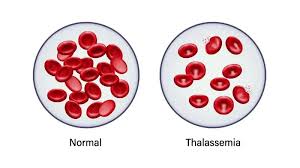
Over 5,000 Thalassemia Cases Detected as Government Strengthens National Response Through Screening and Treatment Initiatives
The Union Minister of State for Health and Family Welfare, Anupriya Patel, informed the Lok Sabha that the Government of India is actively supporting States and Union Territories in strengthening their healthcare systems to prevent and manage Thalassemia under the National Health Mission (NHM). This support includes the establishment of blood banks, day care centers, provision of medicines, laboratory services, public awareness activities, and training of healthcare personnel—depending on proposals submitted by individual states in their Programme Implementation Plans.
As of March 26, 2025, data submitted by states on the National Portal indicates that out of 15.87 lakh individuals screened for Thalassemia, 5,037 individuals were identified as thalassemia patients, while 50,462 were found to be carriers of the genetic blood disorder. The screenings form part of a nationwide effort to curb the prevalence of the disease through early detection and management.
To guide states and health authorities, the Union Health Ministry had earlier issued comprehensive guidelines in 2016 on the "Prevention and Control of Hemoglobinopathies in India" covering Thalassemia, Sickle Cell Disease, and other hemoglobin variants. These guidelines lay out clear strategies for the treatment and management of various forms of Thalassemia, including the transfusion-dependent Thalassemia major and non-transfusion dependent Thalassemia (NTDT). Treatment approaches include regular red blood cell transfusions, iron chelation therapy to manage iron overload, complication monitoring, and psychosocial support.
One of the flagship programs under this initiative is the Thalassemia Bal Sewa Yojana (TBSY), launched in collaboration with Coal India Limited (CIL) through its Corporate Social Responsibility (CSR) funds. The scheme provides financial assistance of up to ₹10 lakh for eligible children undergoing bone marrow transplants (BMT), a potentially curative treatment for Thalassemia. Currently, 17 empanelled hospitals across India are designated to perform BMTs under the scheme.
Through this multi-faceted approach—comprising early detection, comprehensive treatment guidelines, and financial support—the government aims to reduce the burden of Thalassemia and improve the quality of life for affected individuals and families nationwide.